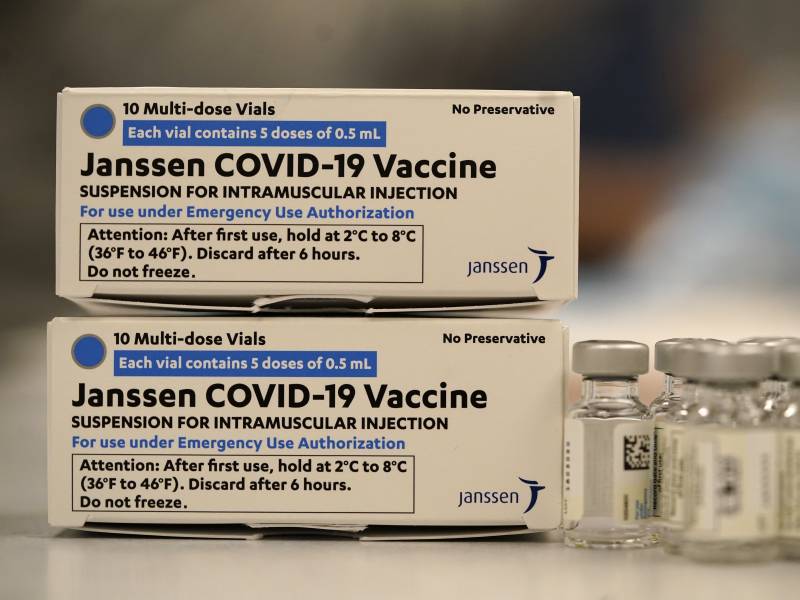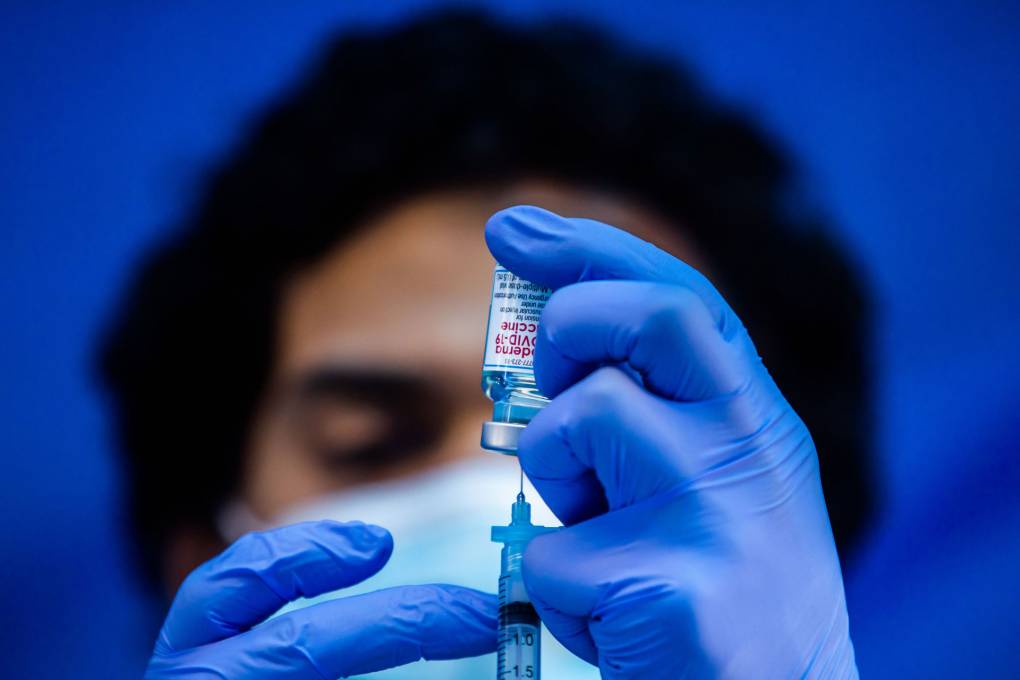Following the recommended pause in vaccination with the Johnson & Johnson vaccine, Jeffrey Zients, the White House coronavirus coordinator, said, "we are working now with our state and federal partners to get anyone scheduled for a J&J vaccine quickly rescheduled for a Pfizer or Moderna vaccine."
Marks said the joint CDC/FDA recommendation was "not a mandate." He said that on a case-by-case basis, a doctor and patient could make a determination whether the J&J vaccine was appropriate. "We are not going to stop a provider from administering the vaccine," he added.
The New York state health commissioner, Dr. Howard Zucker, said the state would suspend its use of the vaccine pending results of the federal investigation.
In a statement sent to NPR, Johnson & Johnson said it was "aware of an extremely rare disorder involving people with blood clots in combination with low platelets in a small number of individuals who have received our COVID-19 vaccine."
"We have been working closely with medical experts and health authorities, and we strongly support the open communication of this information to healthcare professionals and the public," the company said.
Johnson & Johnson said it was also reviewing the cases with European health authorities and that in the meantime, it will "proactively delay the rollout of our vaccine in Europe."
More than 6.8 million doses of the Johnson & Johnson vaccine have already been administered in the U.S., alongside tens of millions of doses of vaccines produced by Pfizer-BioNTech and Moderna. The Johnson & Johnson vaccine received FDA emergency authorization for distribution in February.
Similar concerns over rare blood clots have been raised over the Oxford-AstraZeneca vaccine, which has been widely administered in the U.K., European Union and many other countries. Last week, the European Union's drug regulator said the benefits of the vaccine outweigh its risks.
Marks called the situation with the J&J vaccine that is currently under review was "very similar" to the one experienced with AstraZeneca's vaccine.
He said that among the people who've received 180 million doses of vaccine by Pfizer and Moderna, no cases of CVST with low blood platelets have been seen.
The recommended pause in U.S. inoculations using the Johnson & Johnson vaccine could further complicate the immunization drive against COVID-19, which has killed more than 562,000 people in the U.S., amid an uptick in new coronavirus infections and "vaccine hesitancy" among certain groups.
Zients, the White House coronavirus coordinator, said the vaccine distribution pause "will not have a significant impact" on the Biden administration's vaccine plan because the Johnson & Johnson doses make up "less than 5 percent of the recorded shots in arms in the United States to date."
"Over the last few weeks, we have made available more than 25 million doses of Pfizer and Moderna each week, and in fact this week we will make available 28 million doses of these vaccines," Zients said in a statement. "This is more than enough supply to continue the current pace of vaccinations of 3 million shots per day, and meet the President's goal of 200 million shots by his 100th day in office — and continue on to reach every adult who wants to be vaccinated."
Amid manufacturing issues at a facility in Baltimore, Johnson & Johnson has had difficulty ramping up production. It has promised to deliver 100 million doses of its vaccine to the U.S. government by the end of May.
Copyright 2021 NPR. To see more, visit
NPR.org.
9(MDAxOTAwOTE4MDEyMTkxMDAzNjczZDljZA004))


9(MDAxOTAwOTE4MDEyMTkxMDAzNjczZDljZA004))
